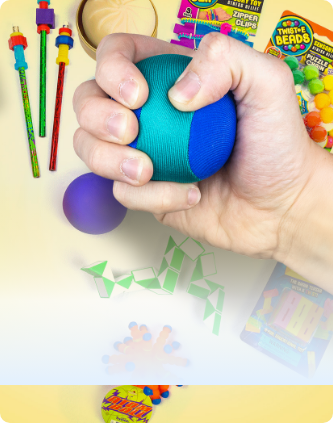
Product Details
If you're looking for a social skills curriculum that truly works, this book by Dr. Jed Baker is a must-have! Based on his successful social skills training groups, this guide is perfect for parents, teachers, and professionals who want to help students, especially those with ASD, develop essential social skills.
Dr. Baker, a clinical psychologist with over 30 years of experience, has created a user-friendly manual that covers everything from assessing students to behavior management and promoting peer acceptance. Educators will appreciate the practical approach to each lesson and the wealth of ready-to-use activities. Utilizing research and evidence-based methods, the lessons help students build CASEL skills in the areas of self-awareness, self-management, social awareness, relationship skills, and responsible decision-making. This edition especially focuses on achieving better outcomes through addressing motivation and generalization.
The 20th anniversary edition includes updated research, over 25 new lessons, and a total of 92 specific skill lessons. These lessons cover a wide range of topics, including:
- Managing emotions like frustration, anger, anxiety, and social fears
- Verbal and non-verbal communication
- Playing and interacting in groups
- Building empathy, friendships, and understanding dating
- Handling conflicts
- Dealing with emergency situations
Each skill lesson is presented in a simple, easy-to-use format, with activities and handouts that can be practiced both at home and in the classroom. The book also emphasizes the importance of promoting peer acceptance through sensitivity training, making it a complete social skills training package.
Specific skills covered include:
Conversational Skills
- Maintaining Appropriate Physical Distance from Others ("Don't Be a Space Invader")
- Listening Position
- Tone of Voice (Volume, Pace, Prosody: e.g., flat versus "sing-song" tone)
- Greetings
- How and When to Interrupt
- Staying on Topic
- Maintaining a Conversation
- Taking Turns Talking
- Starting a Conversation
- Joining a Conversation
- Ending a Conversation
- Asking a Question When You Don't Understand
- Saying "I Don't Know"
- Introducing Yourself
- Getting to Know Someone New
- Introducing Topics of Interest
- Giving Background Information about What you are Saying
- Shifting Topics
- Talking Briefly
- Editing Sensitive Topics (Avoiding topics that upset others)
- Complimenting
- Use Your H.E.A.D. (Acronym for Happy voice, Eye contact, Alternating turns, Distance)
- T.G.I.F. (Acronym for Timing, Greeting, Initial Question, Follow-up questions)
Cooperative Play Skills
- Initiating Play
- Joining In
- Compromising (Deciding What to Play)
- Sharing
- Taking Turns
- Taking Turns Going First
- Playing a Game
- Dealing with Losing
- Dealing with Winning
- Ending a Play Activity
Friendship Management
- Informal Versus Formal Behavior-(when and with whom to be casual versus formal)
- Respecting Personal Boundaries
- Facts versus Opinions (Respecting Others' Opinions)
- Sharing Your Friend
- Getting Attention in Positive Ways
- Don't Be the "Rule Police"
- Offering Help
- Keeping Secrets and When to "Tell"
- Modesty (Do Not Brag)
- Asking Someone Out on a Date
- Appropriate Touch
- Dealing with Peer Pressure
- Dealing with Rumors
- Calling Someone on the Telephone
- Answering the Telephone
Emotion Management Skills
- Self-Regulation
- Recognizing Feelings
- Feeling Thermometer
- Keeping Calm
- Problem Solving
- Talking to Others When Upset
- Dealing with Family and Relationship Problems
- Understanding and Dealing with Anger
- Anger Record
- Dealing with Making a Mistake
- Trying When Work Is Hard
- Trying Something New
Empathy
- Showing Understanding: K-4th Grade
- Showing Understanding: 5th grade and up
- Cheering up a Friend
Conflict Management
- Asserting Yourself
- Accepting No for an Answer
- Dealing with Teasing (and Acts of Aggression) K-4th Grade
- Dealing with Teasing (and Acts of Aggression) 5th grade and up
- More Words to Deal with Teasing
- Dealing with Being Left Out
- Avoiding Being "Set Up"
- Giving Criticism (in a Positive Way)
- Accepting Criticism
- Having a Respectful Attitude
Whether you're a parent, teacher, or therapist, this book will guide you in teaching students not just a series of skills, but how to connect with others in meaningful ways.
Size: 8.5" x 0.75" x 11"
398 pages
Ages: children & adolescents











